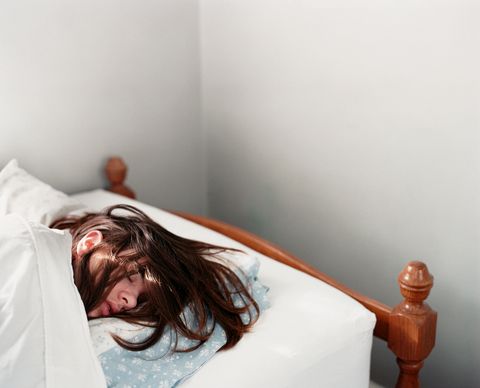The link between sleep and health has been well known for some time. Thus, researchers go deeper and deeper into details, to try to understand more about the collateral aspects: duration, time of rest, factors that influence it. Specifically, a new study suggests that there is likely a specific time to go to bed to optimize the consequences of your rest.
Of course, the aspects that intervene in our rest are not always under our control, at least not entirely. It therefore remains clear that anyone who has difficulty sleeping should consult a specialist: this is to say that pushing on a specific time to go to sleep could in some cases even be counterproductive.
That said, according to a survey, the ideal window to maximize the benefits in terms of the cardiovascular system is precisely that between 10 and 11 in the evening. This was established by an analysis by the University of Exeter, in the United Kingdom, signed by psychologist David Plans who put under the lens the data from the accelerometers worn on the wrist by 88,026 participants in the UK Biobank maxi-survey recruited between 2006 and 2010. These are therefore people resident in the United Kingdom.
“Our bodies have an internal 24-hour clock, called the circadian rhythm, which helps regulate physical and mental functioning,” Plans writes. “Although we cannot conclude the causal link from our study, the results suggest that going to bed sooner or later it may be more likely to disrupt the biological clock, with negative consequences for cardiovascular health. ”The data set analyzed included 3,172 subjects with cardiovascular problems monitored for nearly six years.
The survey, published in the European Heart Journal-Digital Health, found that going to sleep after midnight or before 10pm would be associated with a 25% increase in cardiovascular disease when compared to the habit of falling asleep between 10pm and 11pm. This increase is reduced a little, by about 12%, if you get under the covers between 11 and midnight. In general, the most risky time is to go there after midnight, “because it reduces the possibility of resetting with the morning light” explains the psychologist, suggesting therefore that it would not be so much the amount of hours of rest that would create problems as the upsetting of the rhythm circadian if you wake up late.
The trend seemed to remain the same considering elements such as age, gender, sleep duration, the fact of being early risers or people who usually go to sleep late, smokers and more weight, diabetes, blood pressure, levels. cholesterol and socioeconomic status. It seems that the effect is more pronounced for women even if the causes are not well understood and could be linked to the functioning of the endocrine system. Or it could be linked to the high age of the sample taken into consideration (mainly whites with a high economic situation between 43 and 79 years old): after menopause, cardiovascular risks for women increase, so there may not be any absolute differences even between males. and females.
Obviously, the investigation cannot determine whether it is precisely the little rest or some other factor that produces the worst consequences for one’s heart and circulation. And the partial aspect of the sample may have influenced the results even though the use of biometric data is somehow able to eliminate potential recall bias that may be present in studies that rely on the survey data. In addition, “the findings align with previous research showing an increased risk of cardiovascular problems for people who go to sleep late and with what we know about the physiology of our biological clock: that it needs a scheduled and regular restart. ”Reads on ScienceAlert. On the other hand, as Plans added, “the misalignment of behaviors and the circadian clock increases inflammation and can compromise glucose regulation, both factors that can increase the risk of cardiovascular disease”.
This content is created and maintained by a third party, and imported onto this page to help users provide their email addresses. You may be able to find more information about this and similar content at piano.io

